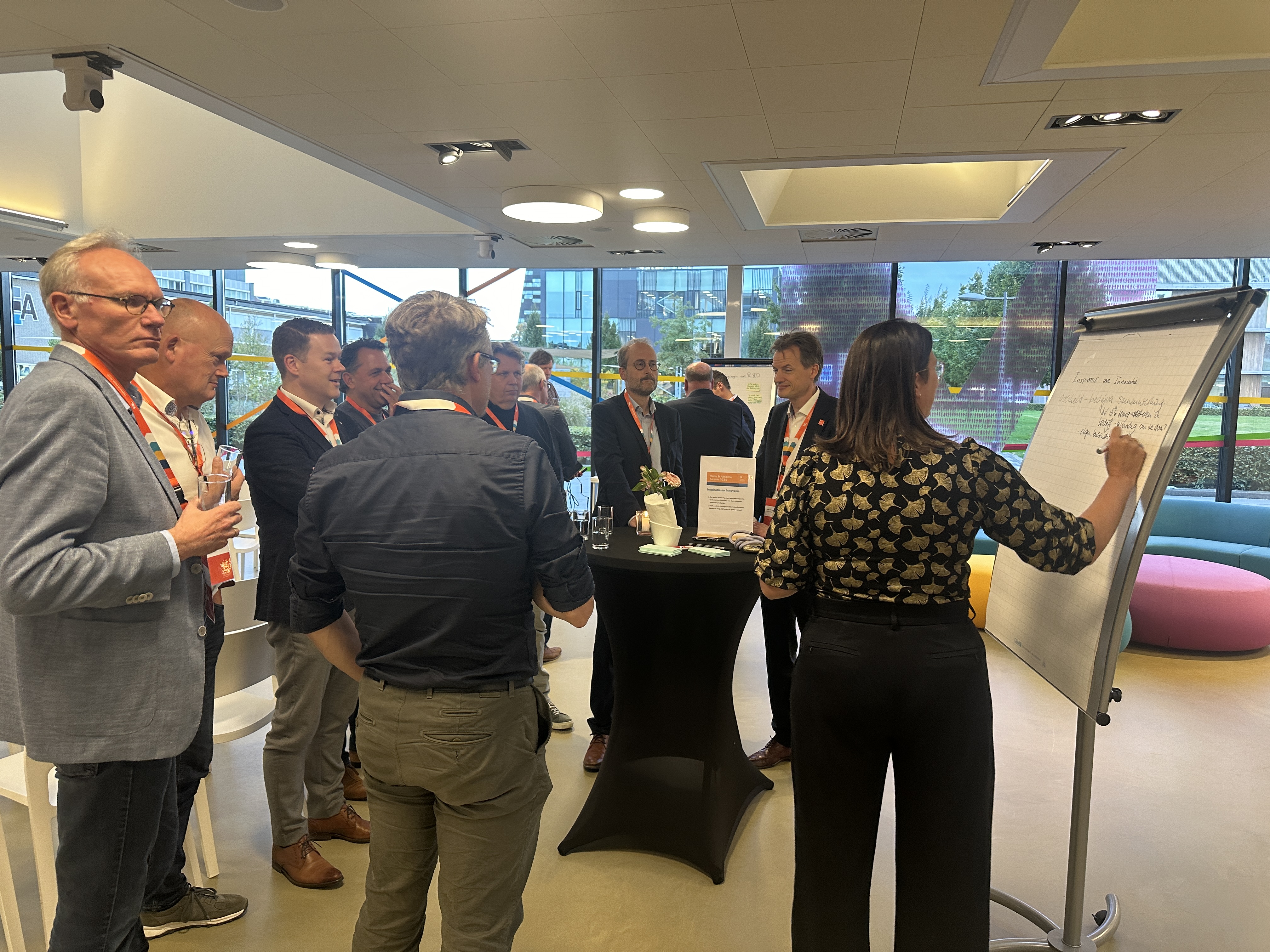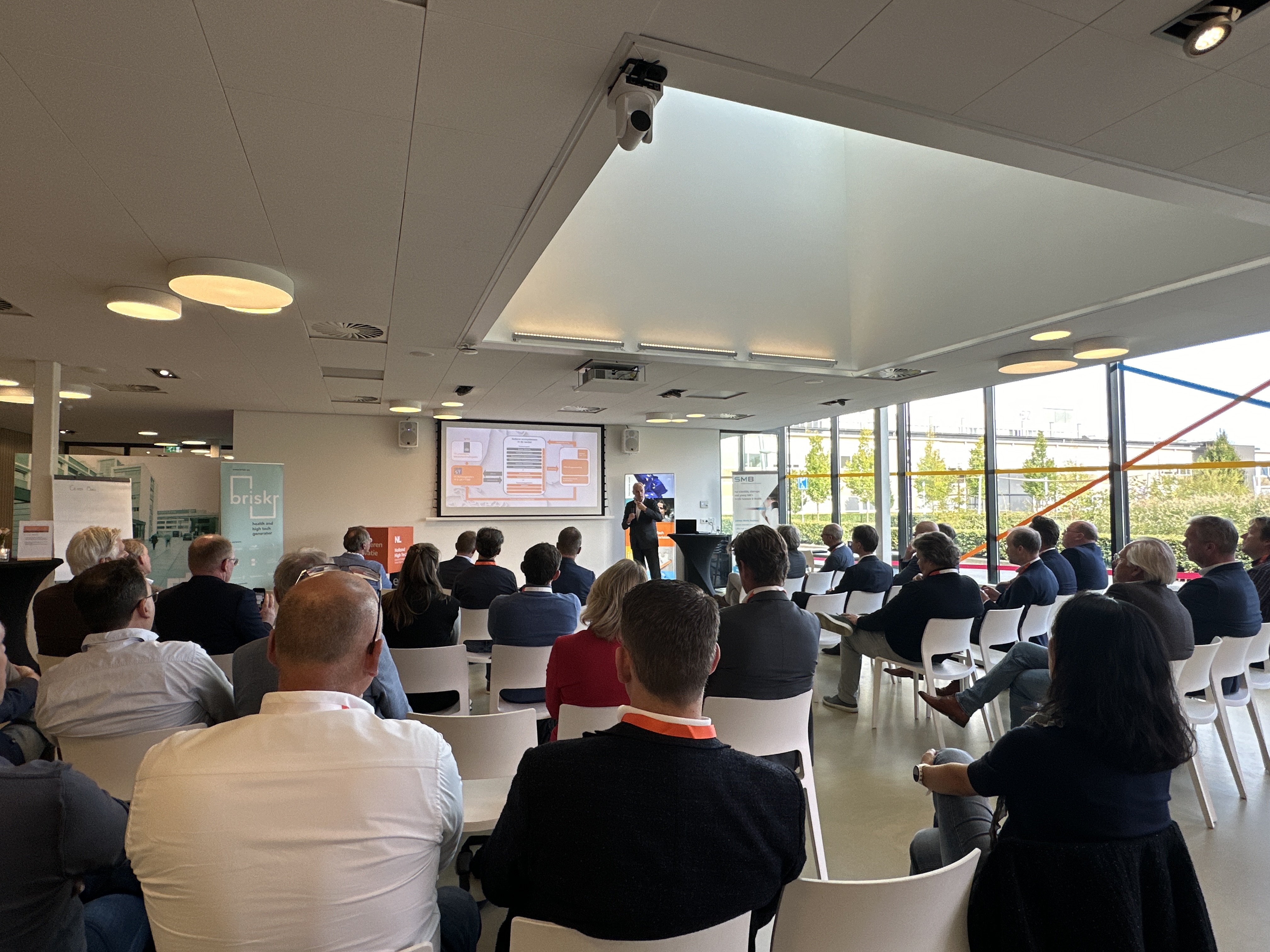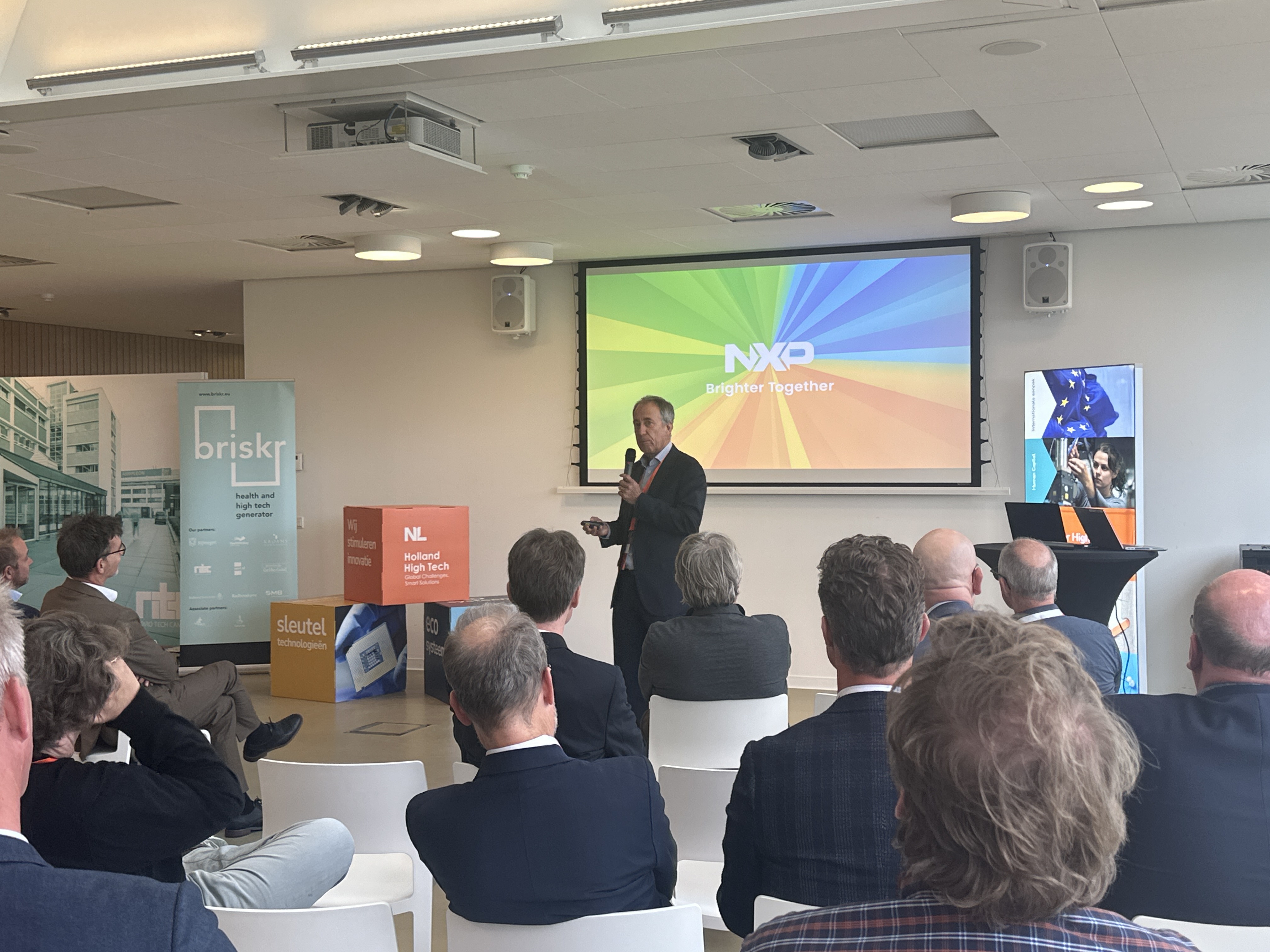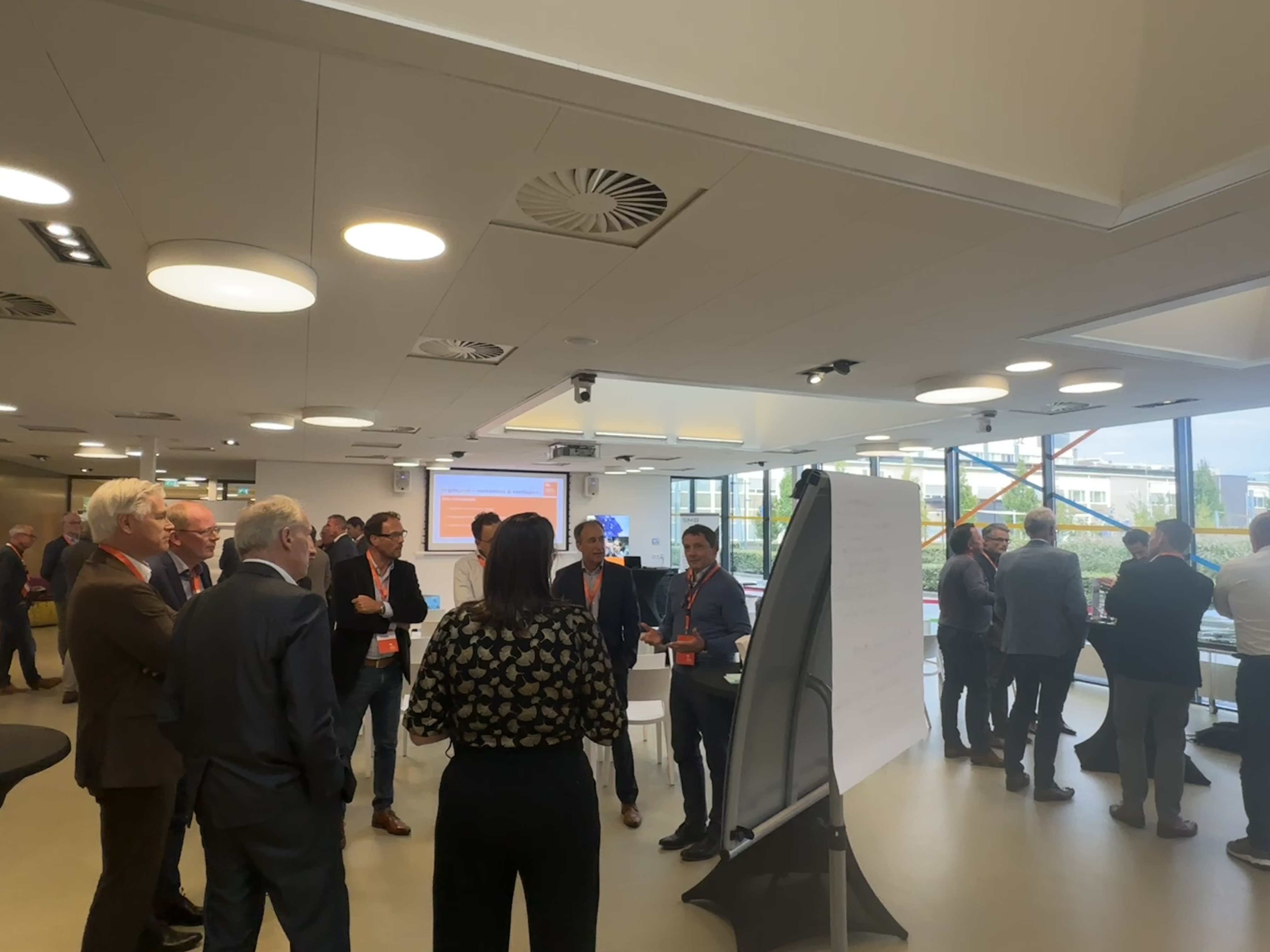Dutch technology developers: seek collaboration across domain boundaries
Research organizations in the Netherlands are developing wonderful technology. How can we intensify this and ensure that the money earned from it also strengthens the Dutch economy? Holland High Tech discussed this theme with experts during the first Vision & Ambition session in 2024 that we organized together with OOST.NL on the NovioTech campus in Nijmegen.
The strength of the Netherlands lies in developing quality and knowledge, not in mass production. That was one of the conclusions in the brainstorming sessions during the meeting. In order to fully utilise these strengths, the government must take on a governing role. This does not only involve government funding, but also creating focus, encouraging research organisations to collaborate with the business community and helping to develop the missing links in the chain.
Better use of openness with cross-overs
In the Netherlands, the willingness to share knowledge and collaborate is much greater than in the countries surrounding us. There is more fear of intellectual property leakage there. We should make better use of this open attitude in the Netherlands by sharing knowledge and experience across sectors (cross-over). “Developments that are focused on a goal can fail. But they often find their success in completely different applications,” explained Guus Rijnders, UTwente professor and Captain of Science of Holland High Tech.
“The Netherlands is well prepared for the enormous competition that arises around key technologies as a result of the Chips Act and the like. But are there cross-overs among all those key technologies, all those ecosystems, that typically fit the Dutch way of working? These must be addressed with urgency in order to maintain the innovative power in the Netherlands.” The question is how to organize this search for cross-overs? Should it be a needs-driven process or can they arise by developing a vision?”
From policy to concrete actions
In any case, the best ideas are created through collaboration. HHT is fully committed to this. For example, as coordinator of the Knowledge and Innovation Agenda Key Technologies (KIA ST), explained Leo Warmerdam, director of Holland High Tech. “We are working with all parties involved on the development of action agendas within the National Technology Strategy (NTS).” In addition, a total of fourteen strategic four-year programs have been set up within the framework of the Innovation Scheme for Public Private Partnerships (PPS-I), focused on important technologies and urgent transitions. “45 million is available for financing collaboration projects this year. In addition, we are excellently capable of organizing activities, building ecosystems and ensuring that we have the right conversations with the right people to support that process.” He goes on to say that the Ministry of Economic Affairs (EZ) is currently recalibrating the sector policy. In addition, HHT is setting up a program council in which a representative from each of the ecosystems around a high-tech key technology or application area will sit. “It is then about converting policy into concrete actions. What is important, what should we focus on and which public-private partnership projects and programs are we going to finance with priority?”
There will also be an expansion for SMEs in the HHT financing policy.
In the SME high-tech call that will open soon, we will finance a company in its research for the first time. An SME can temporarily employ a researcher from a research organization in a yet to be determined collaboration project. The SME will be the leading party and that is fairly unique in the public-private partnerships as we know them.
This call opens on December 16, and from the end of October the content of this new call will be online on the Holland High Tech website.
Innovation means collaboration
NXP is of course an example of a Dutch company that has grown into a world-leading position. The company invests 16% of its turnover in research and development, recalls Rob Frijns, vice president and head of R&D at NXP who gave a short presentation. About a third of the company's twelve thousand employees work on innovation, 10% of which in the Netherlands. Collaboration is the recipe for success, Frijns agrees.
We tried it alone, perhaps for too long. Now we are very proud that we are continuously looking for cooperation. Between the branches of the global company, but certainly also with all the partners around us. You never win alone. You never have all the ‘capabilities’, never all the quality in-house.
Integrating different technologies is a crucial element in the challenges facing society. Frijns mentions the development of robots that we can trust as an example. “Anyone who has ever used ChatGPT knows that you would rather not get into a car that is controlled by ChatGPT.”
We currently live in an ‘on demand’ world in which we press a button and then something happens. But Frijns expects that we will move towards a world in which robots around us know what we need, or where we want to go, or what maintenance is necessary for our house. We must be able to trust the robots that provide this. “In the chain of perceiving (sense), thinking (think), connecting (connect) and acting (act), there is still much room for improvement in the ‘sense’ and ‘think’ of current robots,” says Frijns. And these aspects must be combined even better with functional and digital security, to ensure that, for example, the self-driving car does not crash, but that the controls cannot be taken over by a malicious person.
Financing SMEs is a problem
Dutch universities, colleges and other research organisations are generating enough innovative ideas to get started with. And to some extent, that is also happening. In 2021, the Netherlands had 1,400 knowledge-intensive start-ups (deep tech startups), according to figures from startup promoter Techleap.nl. Calculated per million inhabitants, that is more than the European average. The problem is that these companies have more difficulty growing independently into significant players on the global market. As a result, they quickly end up in the hands of foreign companies.
Insufficient financing from Dutch investors is a major problem, several participants in the brainstorming sessions agreed. The government can play a role by encouraging large investors to make more venture capital available. One of them was very assertive. ''We are simply far too conservative. And as a result, we are being passed over on all sides. In the Netherlands, we are far too afraid that an investment will turn out to be a waste of money. But you just have to dare to do something. If it falls apart, that's a shame. That capital will be put on the table somewhere else. Just letting it go is very common in America. And that is what I miss here.''
There are tasks for the government, business, research organizations and the financial sector. Only by working together well and looking beyond domain boundaries for unexpected opportunities, will it be possible to continue to strengthen the Dutch economy with groundbreaking technology.









